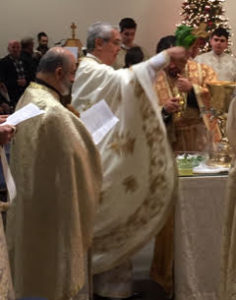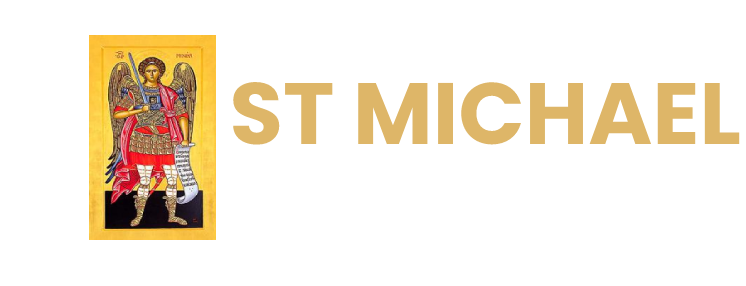When do New Year resolutions fail? Why do they fail? What does the Feast of Holy Theophany teach us?
Being decisive is important to getting anything done. But it is only the start of initiating an action, starting over, or trying again. So why do we seem to always fail? It is because deciding to do something is not enough. For many, a new action may last for a period of time before it gets old, or we get tired and slip back to what we’ve been familiar with, or have been doing for a long time. And we give up!

The Feast Holy Theophany brings us renewal. In the Revelation of John (21:5) we hear the Lord say, “I am making everything new!” He did not say, “I am making new things.” He did not make a mistake or violate His own principles. He fully entered our world and filled it with His divine presence to renew it! And the Feast we are now celebrating is His call for us to be renewed.
The Feast of Holy Theophany also provides us with illumination. However, it begins with our repentance—the full acceptance of responsibly saying “I’ve been wrong.” It is then and only then that something new can really begin. To be resolute without illumination and repentance is self-serving. For many, that may be the goal. For the Christian, however, it is not only “I” who matters.
The Feast of Holy Theophany is also called the Feast of Light. Light illumines. It also reveals. If we are afraid of light and are more comfortable in darkness, we kid ourselves into thinking that change can come. We may also, in fact, not be ready for change.
Believing in all that Christ has come to do in order to save us—even from ourselves, can be the greatest challenge for you and I. We must desire with all of our heart, mind and soul to seek purification from sins with sincere repentance; even forgiving ourselves if necessary; or at least begin to seek knowing what we must rid ourselves from in order to be illumined by the Light of Christ.
In St. John’s Gospel we hear: “This is the verdict: Light has come into the world, but men loved darkness instead of light because their deeds were evil. Everyone who does evil hates the light, and will not come into the light for fear that their deeds will be exposed. But whoever lives by the truth comes into the light, so that it may be seen plainly that what he has done has been done through God.” (John 3:19-21)

No one of us would admit that we intend to do evil things or delight in what is evil. It may also be difficult for us to think of wanting to “let [our] light shine before men that they me see [our] good deeds and praise [our] Father in heaven.” (Matthew 5:16) Would that not be prideful? What did Jesus mean in saying that?
Jesus also said (in the same section of St. Matthew’s Gospel beginning with verse 14): “You are the light of the world. A city on a hill cannot be hidden. Neither do people light a lamp and put it under a bowl. Instead they put it on its stand, and it gives light to everyone in the house.”
Wait a minute: Isn’t Jesus “the Light of the world?” Yes, He is! Well then, who am I to think of myself as “the light of the world?”
In his epistle St. John says: “God is Light; in Him there is no darkness at all.” He goes on to say, “If we claim to have fellowship with Him yet walk in darkness, we lie and do not put the truth into practice. But if we walk in the light as He is in the light, we have fellowship with one another, and the blood of Jesus, His Son, purifies us from every sin.” (I John 1:5-7) Notice that St. John’s words teach us that there can be no separation in our relationship to each other, if we walk in Christ’s light and have united ourselves with Him. It’s like a candle that is lit by one that is already aflame. We share in being the light of the world by bearing the Light of Christ.
In Chapter Two, St. John becomes more explicit. He says, “Anyone who claims to be in the light but hates his brother is still in darkness. Whoever loves his brother lives in the light, and there is nothing in him to make him stumble. But whoever hates his brother is in the darkness and walks around in the darkness; he does not know where he is going, because the darkness has blinded him.”
Finally, renewal will be prevented if we continue to hold on to what we must completely let go of. God’s forgiveness is something we can count on. Can He count on us to do His will and walk in His light?
May the Feast of Light, Holy Theophany, the full revelation of the Holy Trinity, illumine us in heart, mind and soul, that we may, with the fear of God, in faith and love, shine brightly with God’s radiance!
Christ is in our midst!
He is and ever shall be!



